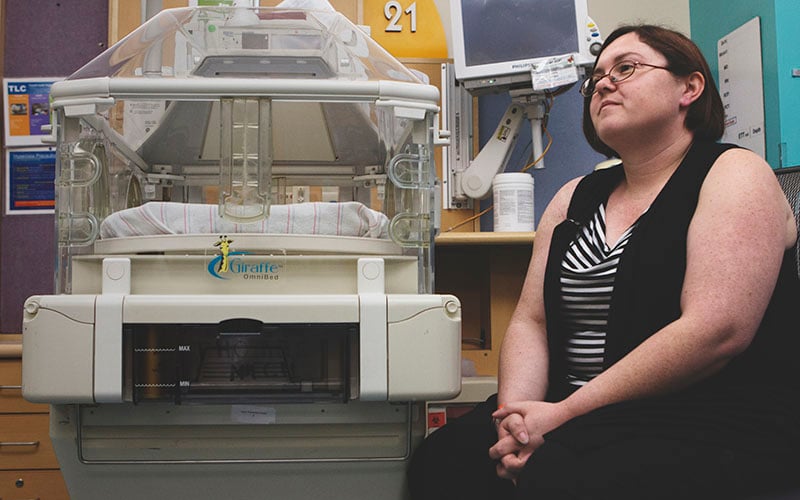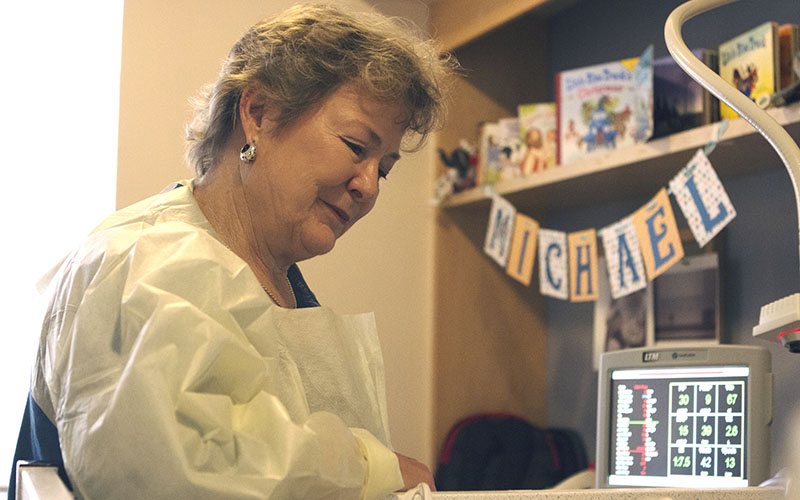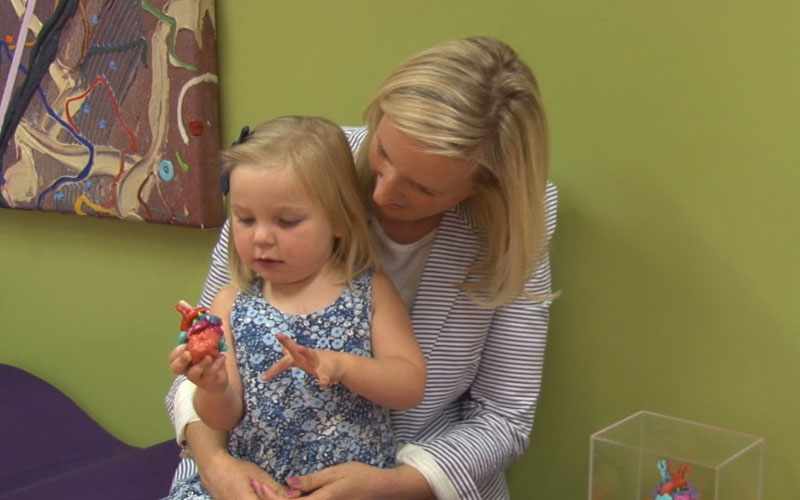PHOENIX — Nurses sweep through narrow aisles in a dimly lit room, tending to tiny patients born prematurely or with problems.
A mother is here for hours, watching her baby born 10 weeks too soon, touching the hands of her son to the beeps and buzzes of the machines that monitor her boy.
Still, as much as she wants to be here always, she has a three-year-old daughter at home who also needs her.
But Ashlee Minton’s smartphone and the camera that hovers over Michael Minton in his crib provide a 24-hour view of his life at an Arizona hospital.
“Michael had surgery the other day and I was able to just login to the camera and see how he was doing,” Minton said. “I logged in every hour to see if he was awake, if he was happy, if he was sleeping.”
Michael Minton, now eight months old, is a “preemie” who developed ascites, a dangerous buildup of fluid in his abdomen and other organs. Ashlee Minton saw her son flatline several times. He has lived his young life in three hospitals, the last four months at Phoenix Children’s Hospital.
Two weeks ago, the hospital became the first in Arizona to install cameras in its neonatal intensive-care unit. A camera, clutched in a metal claw similar to those in arcade toy machines, is suspended over 31 cribs.

Ashlee Minton, mother of a child at Phoenix Children’s Hospital, speaks on her experience with the medical center over the last eight months. (Photo by Christopher West/Cronkite News)
For two weeks, Ashlee Minton and Michael’s big sister, Elizabeth, could watch him as he squirmed or slept.
“I pull it up before she goes to bed at night and she gives him a kiss goodnight on my phone,” Ashlee Minton said. The cameras provided relief and reassurance in the rare times when she and her husband could not be at the hospital.
“The last eight months this has become my life,” she said. “I get up, take my daughter to my in-laws, come to the hospital all day, take care of Michael, eat lunch in the cafeteria, go home.”
She tried to balance her time with her daughter and her son, concerned about staying with him but leaving her daughter.
“I was really worried about her feeling neglected or feeling animosity towards her brother.”
Before the camera was installed a call to the nurse’s station was her only lifeline.
“I was neurotic,” Minton said. “Instead of calling and having to wait to talk to a nurse I could just login and see how he was doing.”
Diane Minton, Ashlee’s mother-in-law, praised her for her commitment to family.
“You can’t be here 24-hours-a-day,” said Diane Minton, who also used the camera connection to see her grandson when she was away from the hospital. “To be able to check in and see how things are going, to see whether he’s awake or sleep and everything’s alright, is very reassuring.”

Diane Minton looks over her grandson at the Phoenix Children’s Hospital. (Photo by Christopher West/Cronkite News)
The hospital is the only one in Arizona and among a few in the country to have the camera technology, according to Barb Harvey, manager of the neonatal unit. The cameras allow families to use a smartphone, tablet, laptop or desktop computer to check on their child, day or night. Each login is private so families only see their child.
The hospital plans to add the cameras, paid through a grant, to its pediatric intensive-care and heart intensive-care units.
 3D-printed heart helps family cope with toddler’s lifetime of heart surgeries
3D-printed heart helps family cope with toddler’s lifetime of heart surgeries